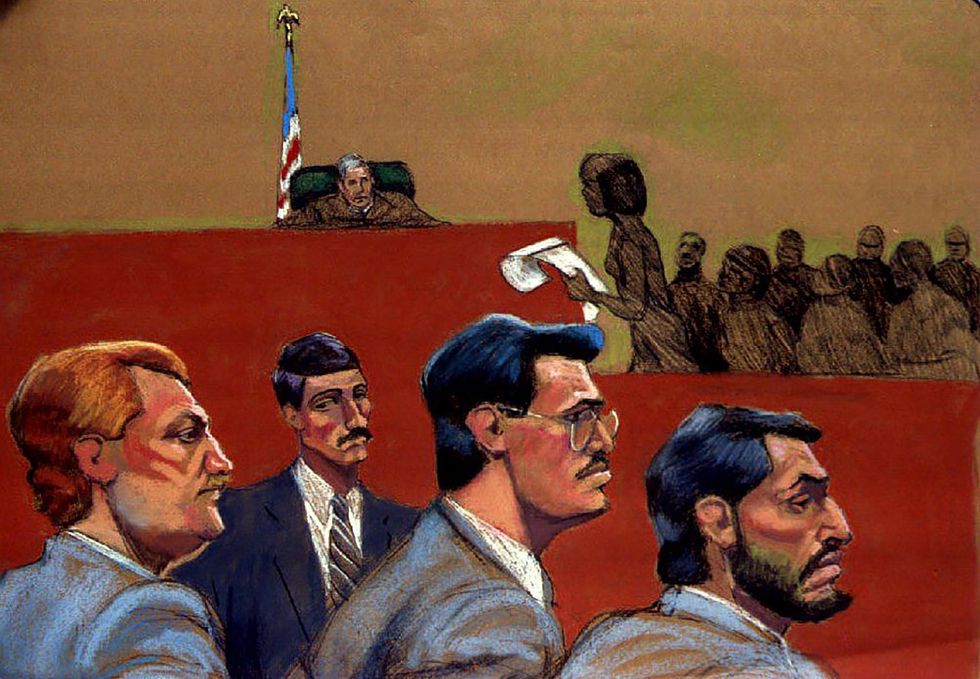
One of the men involved in the 1993 World Trade Center bombing is suing federal prison officials for not honoring the caveats of his Muslim religion. (RUTH POLLACK/AFP/GettyImages)

Ahmad Ajaj, one of the men involved in the 1993 bombing of New York City's World Trade Center, is suing the federal prison system and the U.S. for not honoring the caveats of his Muslim religion.
In 1999, the court system sentenced Ajaj to more than 114 years in prison for his role in the February 1993 World Trade Center bombing.
Ajaj is currently serving a life sentence at an Indiana prison. He was imprisoned in a super-max Colorado facility when he filed the suit in 2015.
The blast at the Twin Towers killed six people and injured more than 1,000 others after a 1,200-pound bomb was detonated in a parking garage beneath the World Trade Center. An estimated 50,000 people fled from the area in response to the massive explosion, which created a hole in the earth that was 200 feet by 100 feet, and several stories deep into the ground.
Ajaj's lawsuit, which was heard in a Denver federal courtroom this week, accused prison officials of limiting regular interactions with an Islamic religious leader of the same denomination, of not providing meals that adhere to his religious dietary restrictions, and more, the Denver Post reported.
Law students from the University of Denver represented Ajaj in the suit, in which Ajaj said that the U.S. and the federal prison system violated his rights under the federal Religious Freedom Restoration Act.
The 1993 federal law prohibited the government from interfering with a person's religious beliefs and ensuring that those beliefs remain protected.
According to the Post, the lawsuit says, “Throughout his incarceration, Mr. Ajaj has been subject to relentless discriminatory practices by Bureau of Prison staff because of his race and religion.”
The suit also alleges that prison staff openly mocked Ajaj for his faith beliefs insofar as showing him cartoons of the prophet Mohammed and pornography.
The suit adds, “Mr. Ajaj must choose between obtaining his prescribed medications and observing religious fasts; he must choose between eating and consuming a religiously forbidden diet; and he must choose between receiving a disciplinary action and participating in group prayer. Finally, defendants’ refusal to provide regular access to an Imam in violation of their own policy gives Mr. Ajaj no choice but to forego religious guidance.”
According to attorneys for the U.S. government, any such issues with food and spiritual advisor access did not limit Ajaj's ability to practice Islam.
The inmate is seeking punitive damages and compensatory damages. The suit does not specify specifically how much Ajaj is seeking in damages.
Arguments wrapped up on Tuesday after a two-day trial in a Denver federal court. Ajaj was not present, but watched the hearing through video. Judge R. Brooke Jackson did not immediately issue a ruling at the hearing's conclusion. Jackson is expected to do so in writing.